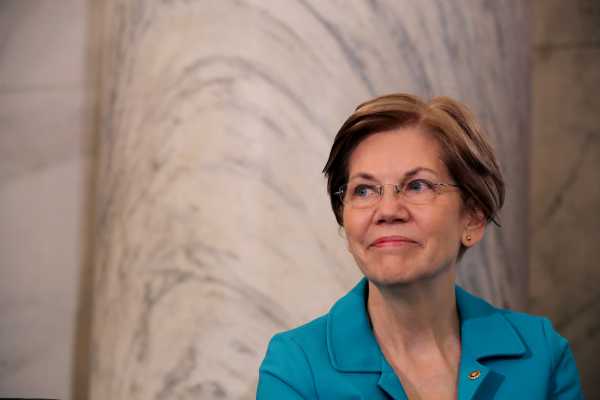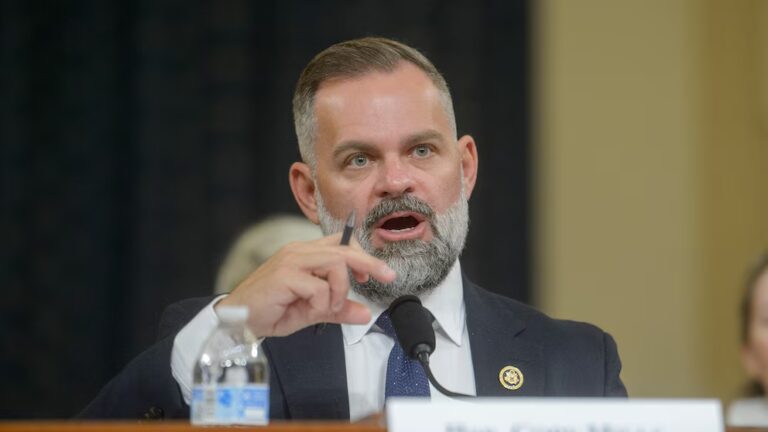
Sen. Elizabeth Warren (D-MA) and Rep. Jan Schakowsky (D-IL) would like the federal government to start manufacturing prescription drugs when the market fails and prices for certain medications become unaffordable.
It’s an interesting idea, experts who lean right and left agree. But more than that, it is a reminder that there are all kinds of creative ways we might go about bringing down drug prices. We know Americans are really worried about drug costs — six in 10 people take a prescription and 80 percent say the cost of drugs is unreasonable — and they really want Washington to do something about it. The issue always ranks as one of the public’s top health priorities for Congress.
But the debate tends to get bogged down for a few reasons. Pharma is a powerful lobby that warns sternly about the threats to innovation under stricter price controls. The system that produces medications and distributes them to patients and pays for them is stunningly complex, making the problems and any unintended consequences difficult to identify. As a result, the bills introduced or the administrative actions pursued to lower drug prices tend to be technical and small-bore and simply unsatisfying to a public desperate for a solution.
One response to this minefield is to, as President Trump has, simply promise that drug prices will come down, some way, somehow, sooner or later — and then they don’t. But Warren and Schakowsky’s bill is a good reminder of the untapped potential for lowering drug prices, if only we think a little bigger.
Warren’s new bill would allow the feds to produce cheap generic drugs
The two lawmakers are targeting generic drugs — knockoff versions of brand-name medications that have lost their patent protections — specifically in their legislation. Generic drugs are supposed to lower drug prices by introducing cheaper alternatives to the brand-name version. But the generic drug industry has come under a lot of scrutiny in recent years, both for hiking generic prices and becoming the target of a historic lawsuit for anti-competitive practices. The system is often not working as intended.
Here’s what Warren and Schakowsky would propose to do: Under limited circumstances, the federal government would produce a more affordable generic version of certain drugs. These are the scenarios when the feds could start manufacturing their own medications:
- If no company is producing a generic version of the drug
- If only one or two companies are producing a drug and there is either a price hike or a drug shortage
- If only one or two companies are producing a drug, the price makes it difficult for some patients to afford, and the World Health Organization classifies it as an “essential medicine”
The bill allows the federal government to either produce the drugs itself or contract an outside company to do it. It would set “fair” prices to cover the costs of making the drugs. They also want the federal government to start producing insulin, which helps treat diabetes (which tens of millions of Americans have) and has seen its prices triple or so over the past decade.
“This proposal could be a helpful intervention for those generic drugs that have recently seen price spikes or are in shortage,” Rachel Sachs, who follows the drug pricing debate at Washington University in St. Louis, told me.
I heard the same from others — “an intriguing idea” as Craig Garthwaite, a health economist at Northwestern University, said.
Major hospitals had the same idea. They’ve set up a new nonprofit drug company, along with some philanthropic groups, that would produce drugs under similar circumstances as the Warren-Schakowsky bill. This is one of the hot ideas in health care right now.
There are some questions, of course, starting first and foremost with how well equipped the government is to make medications. The Food and Drug Administration previously forced the National Institutes of Health to shut down its drug manufacturing facilities over quality concerns — though this legislation notably allows the federal government to contract with private companies to do the actual drug producing.
Lawmakers should think creatively about how to bring down drug prices
Drug costs, as an issue, aren’t going away. Whether you blame pharma, or health plans, or pharmacy benefits managers, or all of them, the public is going to demand action as long as millions of people feel like they struggle to afford the medicine they need to manage and treat their conditions.
The Trump administration has proposed some interesting things, but they are, again, limited in scope. President Trump did share one idea with the Democrats during the 2016 campaign: let Medicare negotiate drug prices. But that is not necessarily a panacea either. In a Medicare-for-all world, where the government covers everyone and pays for everything, then, yes, the federal government would hold tremendous leverage over drugmakers.
But these days, Medicare is merely the biggest of many payers. The Congressional Budget Office doesn’t think Medicare negotiations for prescription drugs would save much money unless the government is willing to restrict or deny access to some drugs. That is a much trickier business than the campaign slogan might suggest. You can imagine pharma-funded ads of somebody’s grandmother who couldn’t get her medications because the feds were playing hardball. The industry feels it has a powerful story to tell about medical innovation and has a lot of money to spend to tell it.
I don’t mean to diminish what more robust negotiations between Medicare and pharmaceutical manufacturers could do — and its supporters would point you to other analyses that suggest more robust savings than the CBO. The point is Democrats should probably be building out their other ideas for how to lower drug costs, especially ahead of 2020, when they might want to counter Trump on this issue in the campaign. The Warren bill, from a presumed presidential contender, is a reminder that there are a lot of options out there.
Sen. Bernie Sanders (I-VT), a potential Warren rival or ally during the 2020 primary (depending on how it shakes out), has spent a lot of time and thought on drug prices. He has introduced the most interesting and outlandish idea for fixing drug prices that I’ve heard: scrapping the whole patent and generics system altogether and building a new one, where drug companies receive some monetary “prize” for developing new breakthrough treatments. (Sanders has indicated that this overhaul could start small, by focusing on, say, HIV/AIDS treatments at first. He’s also introduced other bills, like a recent one to use foreign drug prices as indirect price controls here.)
You might call it crazy. It’s certainly several hops and kind of a gigantic leap beyond what Warren is proposing in her legislation. But they do share a little grander imagination of what might be possible through federal policymaking to lower drug prices.
None of these proposals are going anywhere anytime soon. In the near term, bipartisan compromise looks more like making sure brand-name pharma companies aren’t cheating when generic manufacturers seek materials to produce their cheaper alternative (like a bill from Sen. Amy Klobuchar, who is also getting 2020 buzz, with Republican Chuck Grassley.)
That could help and it could actually pass. But I think the polling shows the pains Americans are feeling on drug prices right now warrant even more enterprising ideas.
Democrats are thinking bigger about health insurance, with ideas like Medicare-for-all. Drug prices, a priority for all Americans everywhere, warrant the same ambition.
Sourse: vox.com






